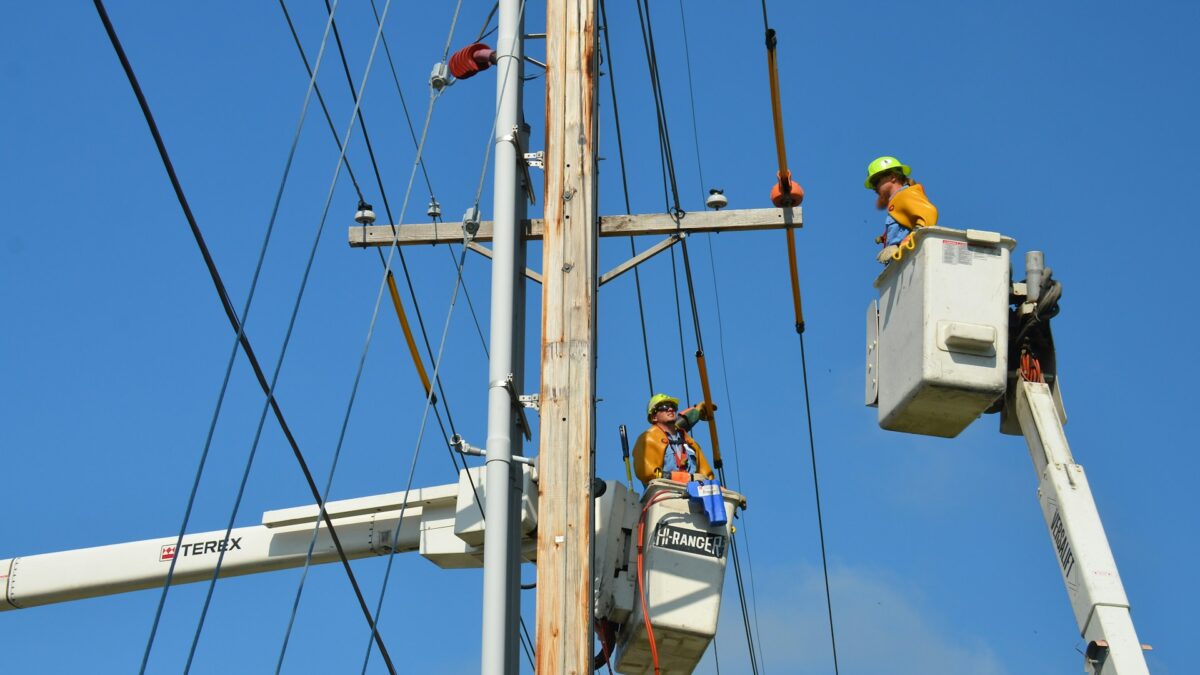
Last Friday, the FBI seized Backpage.com, a website well known for facilitating the sale of trafficked minors, mostly girls, for sex all over the United States. On Monday, seven top Backpage officials were arrested after being indicted on 93 counts, including money laundering and facilitating prostitution, 17 cases of which involve trafficking victims as young as 14. The Washington Post says Backpage earned an estimated $500 million in prostitution-related revenue since its launch in 2004.
The National Center on Missing and Exploited Children reports that 73 percent of all child sex trafficking cases it has handled involved Backpage.com. According to the National Center on Sexual Exploitation, Backpage reached 97 countries and was the world’s largest single facilitator of sex trafficking. NCOSE also reports that from January 2013 to March 2015, 99 percent of Backpage’s global revenue was attributable to prostitution advertising. During that time, it made nearly $51 million from prostitution ads in California alone.
It’s hard to think of a worse escalation of the social ills and violence against women today—systematic rape, forced sexualized photos posted online, commodifying girl’s bodies for the consumption of those in positions of power—all the while huge profits are being made off the exploitation. In a time when sexual harassment and assault are being brought into the public spotlight, it seemed fitting that Backpage’s days were numbered. It seemed that some of our nation’s most marginalized women and girls are finally getting closer to justice.
All this is why many were stunned to see the Women’s March organizers’ response on Twitter on Saturday. “The shutting down of #Backpage is an absolute crisis for sex workers who rely on the site to safely get in touch with clients,” the group stated. “Sex workers rights are women’s rights.”
. The shutting down of #Backpage is an absolute crisis for sex workers who rely on the site to safely get in touch with clients. Sex workers rights are women’s rights. Follow @SafeSpacesDC @melissagira @swopusa @KateDAdamo @supporthosechi @anaorsomething for more info. https://t.co/S3Orx3aM8Z
— Women's March (@womensmarch) April 7, 2018
That the Women’s March’ tweet suggests Backpage helped sex workers do anything “safely” reveals its acceptance of propaganda. That’s because anyone who knows anything about the actual happenings at Backpage and in prostitution today knows the trafficking of minors is a huge component.
Violence By Any Other Name
The Women’s March tweet can’t even be construed to be taken at face value. There’s no context within which Backpage.com made meetings safer for those in the sex industry. In fact, part of why Backpage received government scrutiny was its lack of sexual transaction safety measures, even for minors. Instead, Congress found evidence that Backpage not only automatically deleted incriminating words from sex ads prior to publication, its moderators actively edited posts to remove mentions of minor-aged status when it saw them so it could keep the posts published and keep the revenue—yes, even when they knew the ads were selling minors for sex.
It’s clear to anyone who has followed the issue that Backpage’s actions have always been motivated by profit, never by safety of women being sold. Even after Backpage heard from parents and lawyers that now-rescued minors were pictured in the explicit photos, the site managers would not take them down.
For years, every time victims and their parents took Backpage to court for leaving the photos on their site, judges would dismiss the case due to Section 230 of the Communications Decency Act, a clause created in the 1990s to protect Internet sites from being responsible for what third-parties published on them. These dead-end legal battles were documented in the 2017 documentary “I Am Jane Doe,” directed by attorney and filmmaker Mary Mazzio.
One Boston-area mom, who goes by her first name Angela, described at a NCOSE press conference last Friday how her daughter was kidnapped after being recruited by a girl her age at a mall one night five years ago. Her daughter was 15 years old at the time and returned the next morning after multiple rapes by sex buyers who found her ad on Backpage.com.
Thankfully, law enforcement officials were able to find her traffickers, and Angela and her daughter successfully had them prosecuted. But, for Angela, the closure of Backpage was a long time coming: “We made it our mission to make sure Backpage and places like Backpage will be held accountable for what they’re doing to children… it was a fight but it was worth it… everything that we did and that we’ll continue to do so that this doesn’t happen to anyone else.”
Ultimately Congress took legislative action to amend Section 230. The Fight Online Sex Trafficking Act (FOSTA)/Stop Enabling Sex Trafficking Act (SESTA), passed nearly unanimously in the House and Senate last month and was signed by President Trump on Wednesday.
Many tech groups including Google expressed concerns that FOSTA-SESTA will lead to legal chaos for Internet companies, and their frustration appeared to be justified after Backpage was closed before FOSTA-SESTA had gone into effect. But now that FOSTA-SESTA has been signed, moms like Angela and their daughters will finally be able to take sites like Backpage to court.
It’s fairly expected that this legislation produced much political debate in tech arenas, but from the Women’s March? For many it was more of a surprise hearing dismay from the feminist group whose mission includes “dismantling systems of oppression” and whose focus seemed to be to encourage women to stand up against sexism and exploitation.
Stop Pretending Sex Work Is Safe and Freely Chosen
While it’s impossible to say all women in prostitution are trafficked into it, numerous young women and girls tell us they were sold into sex against their will into the industry that traffickers, sex buyers, and their supporters try to legitimize with terms like “sex work.” We do know, thanks to the research of Melissa Farley at Prostitution Research and Education, that 70 percent of those in the sex industry link their entry to prior sexual abuse.
Most say they entered as minors, which in the United States qualifies as trafficking. Many enter feeling they have no other options, reducing the sense of free choice in the matter. Once they’re in, 89 percent of “sex workers” say they want to get out of the industry but feel they have limited options. You don’t call an industry safe when women are coerced into it and have difficulty getting out.
According to Farley’s comprehensive studies, as many as 99 percent of those in the sex industry have said they experienced violence within it. Thanks to ladies like Marian Hatcher, who leads the human trafficking division at the Cook County Sheriff’s Office, we know that 37 children and adults between 2007 and 2016 were killed as a result of online sex ads like those at Backpage.com. You don’t call an industry safe when women face threats to their lives and agency within it.
So if the Women’s March group says sex workers relied on Backpage.com to “safely get in touch with clients,” one might ask, who are the sex-trafficked girls, then? Clearly not “sex workers trying to safely get in touch with clients.” Sadly, what the Women’s March social media post actually appears to be saying is that these trafficked girls are invisible to them.
The Women’s March tweet reveals that instead of looking at facts or listening to trafficking survivors—some of the strongest women you’ll ever meet, who’ve endured some of the worst abuses you could imagine—the Women’s March organizers have signed on to an agenda pushed by groups who have something to gain from intentionally ignoring trafficking victims. One survivor, Alisa Bernard at the Organization for Prostitution Survivors, Seattle said, “prostitution is the definition of a hostile work environment. What angers me is our inability to be heard when we talk about our victimization. We are in that class of victim that society expects to be raped.”
When you hear formerly trafficked minors tell you they consider prostitution “paid rape,” as I did a couple years ago while completing a journalism fellowship on the topic, you are reminded why prostitution remains illegal in this country. As Tom Jones, a formerly trafficked man and now founder of the Hope Project, described it at the NCOSE press conference, “This world of purchased sex is not the ‘Pretty Woman’ world that many people describe it to be or think that it is. It’s very ugly, its very brutal; it’s slavery; that is what it is. And Backpage has been a proud supporter of that trade for far too long. . . . What people just don’t understand comes out of this world is a life full of pain; and not all of us are lucky enough to get a way out.”
Hatcher recognized one woman who wasn’t able to get out at NCOSE’s press conference on Friday. Her name was Desiree Robinson, and she would have celebrated her 18th birthday this past March 29 if she hadn’t been raped, beaten, and killed by a john who responded to the ad her pimp had posted on Backpage.com.
Only by overlooking victims like Robinson could the Women’s March construe “sex work” as an advancement for women. It appears the Women’s March has some questions it will need to hash out: At what price does the exploitation of women become tolerable—a job promotion, a movie deal, a monetary sum? The answer the #metoo movement seemed to be pointing toward is There is no acceptable price. We are people, not objects for your consumption. It certainly would be a cohesive answer for a movement. It also happens to be true.
For those in the sex trade concerned the closing of Backpage will hurt their safety, a number of sex-industry survivor groups are offering resources here.









